|
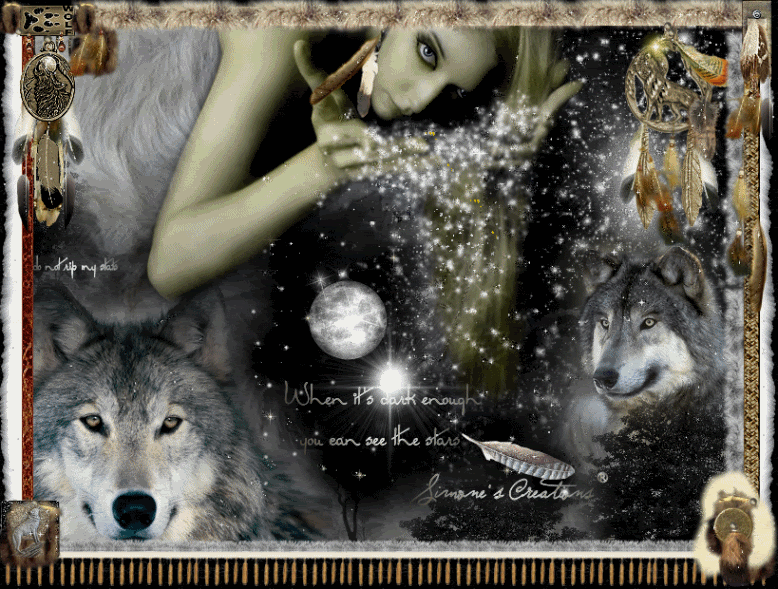
"When you were born, you cried and the world rejoiced. Live your life so that when you die, the world cries and you rejoice."
" Cherokee"


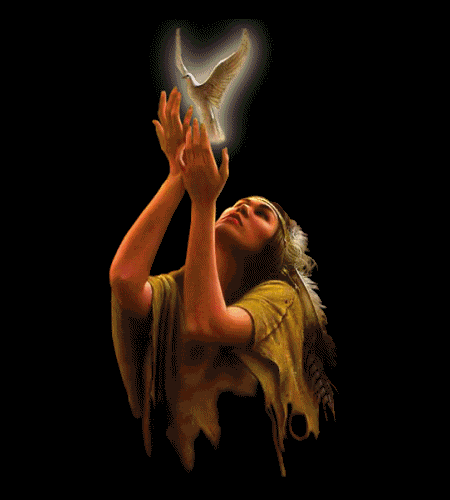

Treat the Earth and all that dwell thereon with respect.
Remain close to the Great Spirit.
Show great respect for your fellow beings.
Work together for the benefit of all Mankind.
Give assistance and kindness wherever needed.
Do what you know to be right.
Look after the well being of mind and body.
Dedicate a share of your efforts to the greater good.
Be truthful and honest at all times.
Take full responsibility for your actions.
Let us greet the dawn of a new day
when all can live as one with nature
and peace reigns everywhere.
Oh Great Spirit, bring to our brothers
the wisdom of Nature and the knowledge
that if her laws are obeyed
this land will again flourish
and grasses and trees will grow as before.
Guide those that through their councils
seek to spread the wisdom of their leaders to all people.
Heal the raw wounds of the earth
and restore to our soul the richness
which strengthens men's bodies
and makes them wise in their councils.
Bring to all the knowledge that great cities
live only through the bounty
of the good earth beyond their paved streets
and towers of stone and steel.
~Native American Prayer~

The First Nation's Peoples had a value system. There were only four commandments from the Great Spirits:
1.Respect Mother Earth
2.Respect the Great Spirit
3.Respect our fellow man and woman
4.Respect for individual freedom
Imagine a society or culture in which most conflict was reconciled by the innate structure of the society. Imagine at the same time a culture in which personal freedom was absolute, yet every member lived within a strict cultural set of laws, or moral code. Imagine a society in which nobody was boss. Or had the power to order people around, and yet every need, every task was accomplished. Imagine a people or culture without prisons, poorhouses, orphanages, insane asylums, banks and bankruptcy, locks on doors, or a ponderous government bureaucracy. This is only part of what was lost when so many Native American cultures were destroyed
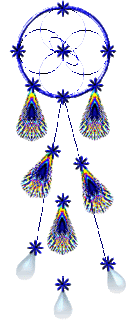
From the beginning of European contact with Indian tribes, the Europeans deliberately set out to destroy Indian society and the Indian way of life through the use of several strategies: 1. Devalue and destroy the religion; 2. Destroy the language; 3. Impose Christianity; 4. Destroy the culture. In Central America, great libraries were put to the torch, the Conquistadors saving a few books to be sent back to the Vatican to be deciphered and translated by scholars for the purpose of ensuring greater efficiency of the Conquest.
Indian languages - more than 200 of them - continue to disappear slowly, and with them the culture and religions. Language has been lost to all but a few of the Eastern tribes. Most of the tribes East of the Mississippi now have English as their only language. When the language disappears, the culture is gone. All the subtleties of meaning and culture are embedded in language.
source: http://yourkeeper.blogspot.com/2009/11/destruction-of-native-culture.html
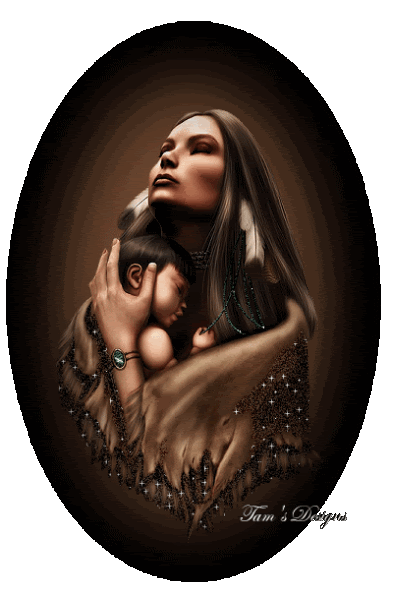
The Circle of Life
"You have noticed that everything an Indian does is in a circle, and that is because the Power of the World always works in circles, and everything tries to be round. In the old days, when we were a strong and happy people, all our power came to us from the sacred hoop of the nation and so long as the hoop was unbroken, the people flourished.
The flowering tree was the living centre of the hoop and the circle of the four quarters nourished it. The East gave peace and light, the South gave warmth, The West gave rain and the North, with its cold and mighty wind gave strength and endurance. This knowledge came to us from the outer world with our religion. Everything the Power of the World does, is done in a circle. The sky is round and I have heard the earth is round like a ball and so are the stars. The Wind, in its greatest power whirls. Birds make their nests in circles, for theirs is the same religion as ours. The sun comes forth and goes down again in a circle. The moon does the same and both are round. Even the seasons form a great circle in their changing and always come back again to where they were. The life of man is a circle from childhood to childhood and so it is in everything where power moves. Our Teepees were round like the nests of birds and these were always set in a circle, the nation 's hoop, a nest of many nests where the Great Spirit meant for us to hatch our children. "
(Black Elk Speaks, pp. 198-200) Spiritual Advisor to the Oglala Sioux in 1930.
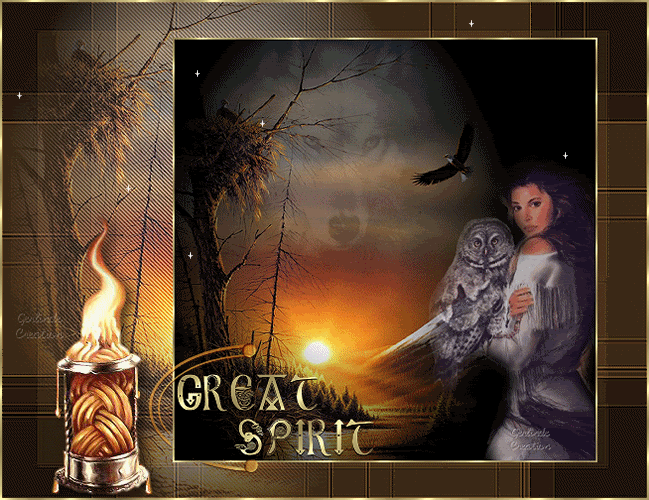
Traditions
Native cultures in their traditional nature are authentic and dynamic, fostering distinctive and sophisticated development. A sense of identity, pride and self-esteem are rooted in established spiritual principles.
Native spiritual life is founded on a belief in the fundamental inter-connectedness of all natural things, all forms of life with primary importance being attached to Mother Earth.
The Medicine Wheel
The symbol of the circle holds a place of special importance in Native beliefs. For the North American Indian, whose culture is traditional rather than literate, the significance of the circle has always been expressed in ritual practice and in art. The lives of men and women, as individual expressions of the Power of the World move in and are nourished by an uninterrupted circular/spiral motion. This circle is often referred to as the Medicine Wheel. Human beings live, breathe and move, giving additional impetus to the circular movement, provided they live harmoniously, according to the circle's vibratory movement. Every seeker has a chance to eventually discover a harmonious way of living with their environment according to these precepts.
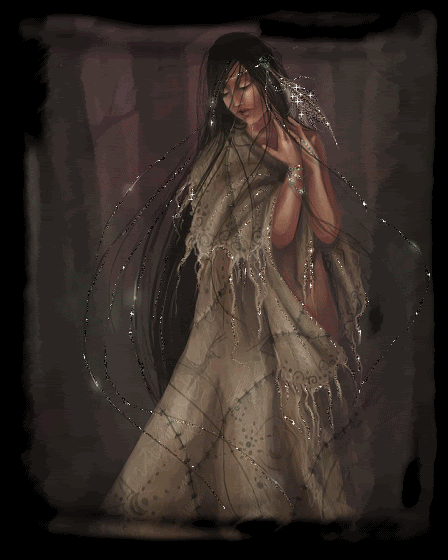
The Four Powers
Each of the four directions represents a particular way of perceiving things, but none is considered superior or more significant than the other. The emphasis is always placed on the need to seek and explore each of the four great ways in order to gain a thorough understanding of one's own nature in relation to the surrounding world.
The four cardinal points of the circle transcend the mere compass directions. The directions themselves embody four powerful natural forces representing seasonal influences associated with various other powerful attributes.
North represents Wisdom. Its colour is white, its power animal is the buffalo and its gift is strength and endurance. From the South comes the gift of warmth and growth after winter is over, a place of innocence and trust. Its colour is green (or sometimes red), its power animal, the mouse. To the West is the place of introspection, of looking within one's spirit. Its colour is black, its gift rain and its power animal the bear. The East is marked by the sign of the Eagle. Its colour is gold for the sun's illumination, the new dawning sky and enlightenment. Its gift is peace and light.
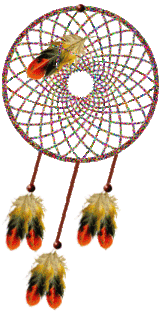
Understanding the meaning of the Medicine Wheel depends on the concept that a person's life consists of"conquering the four hills: Infancy, Youth, Maturity and Old Age. The four stages are celebrated in ritual as the four prime moments in life corresponding to the four directions.
The first hill is the South (innocence and trust) where the infant's reception into life occurs. The second hill, that of introspection, in the West, becomes the youth's solitary vigil and quest for vision. This first quest seeks the revelation of the Great Spirit's manifestation and continuing presence.
This is the time when a power animal attribute enters a Native individual's soul becoming a part of his or her name. (Sitting Bull, Black Elk, Crazy Horse and so on). It marks the beginning of the dweller within, the dreaming soul that contacts the higher spiritual planes bringing back visions that serve as fundamental guide posts in life. The hill of maturity lies to the North and represents the successful realization of ability and ambition. It is the place of recognition in which the pursuit of wisdom underlies and nourishes all action.
Sympathy with life itself grows in this quarter.
The final hill is that of old age situated in the East. It represents a quiet, reflective and meditative segment where the old ones now can pass on their knowledge to youth as they have mastered the meaning of joy and sorrow and the many other trials and tribulations encountered over the course of their existence.
source: http://www.rcmp-grc.gc.ca/pubs/abo-aut/spirit-spiritualite-eng.htm
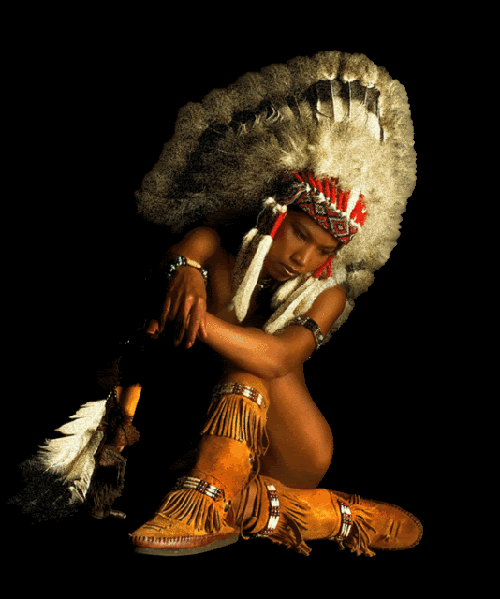
Before Europeans began migrating to North America, it was inhabited by an estimated 10 to 16 million Americans. Contrary to present beliefs, most Europeans referred to the Natives of this country as simply Americans prior to the War of 1812.
The Europeans brought with them all the of sicknesses and diseases associated with living in dirty cities with open sewage running in the streets. To make matters worse, they rarely bathed & almost never had all of their clothes off at the same time. Upon meeting "the White Man", the natives thought they were unclean & tried to teach them to bathe, but were unsuccessful, as "the Whites" found it immodest!
Tragically, the Natives had never been in contact with these illnesses & were ravaged by them. The bubonic plague, small pocks & even influenza killed them on contact. It killed between 90- 95% of them! (by comparison, The Great Plague in Europe during the Dark Ages killed about 30%) The remaining fled to other towns & villages, which caused the sickness to spread like a red carpet before the Europeans.
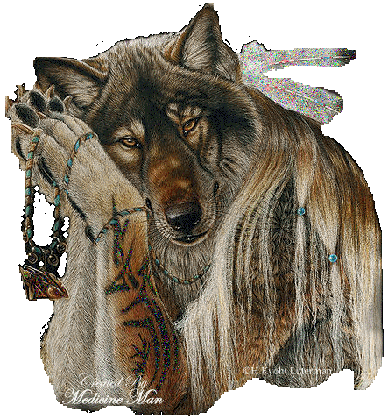
Can you imagine the breakdown that would occur to our culture if 90% of us got violently ill and died, just as an unknown culture arrived on our shores? The Europeans felt it was God's will, and even called it God's plague. Understandably many natives lost their will to achieve long term goals, such as planting for the next season etc. They were in disarray.
When the Pilgrim's landed at Plymouth Rock, they found cleared farmland, recently planted corn, with a "brook of fresh water", in a perfect location to start a town. The fact is that it was a town! The plague had actually cleared the natives out for the Pilgrims arrival! Such was the pattern throughout New England.
The Europeans did not "settle" in Africa or Asia because there were already a lot of people living there. The same was true for America, until The Plagues. Without them, the natives may or may not have been economically dominated, as parts of Africa and Asia were, but certainly not driven off the continent to reservations.
By the time the Plagues had run their course in the east & the tribes had summoned at least a portion of their strength and organization, the Europeans where firmly entrenched in the native's own towns.
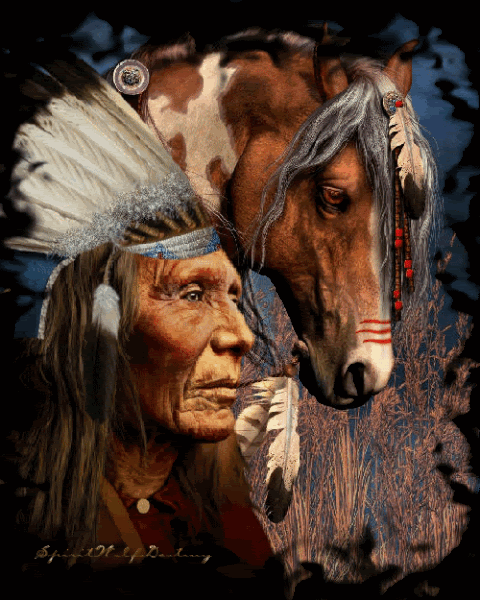
Ten Things The Great Sprit Will Never Ask
1. Great Spirit won't ask what kind of car you drove, but will ask how many people you drove who didn't have transportation.
2. Great Spirit won't ask the square footage of your house, but will ask how many people you welcomed into your house.
3. Great Spirit won't ask about the fancy clothes you had in your closet, but will ask how many of those clothes helped the needy.
4. Great Spirit won't ask about your social status, but will ask what kind of class you displayed.
5. Great Spirit won't ask how many material possessions you had, but will ask if they dictated your life.
6. Great Spirit won't ask what your highest salary was, but will ask if you compromised your character to obtain that salary.
7. Great Spirit won't ask how much overtime you worked, but will ask if you worked overtime for your family and loved ones.
8. Great Spirit won't ask how many promotions you received, but will ask how you promoted others.
9. Great Spirit won't ask what your job title was, but will ask if you performed your job to the best of your ability.
10. Great Spirit won't ask what you did to help yourself, but will ask what you did to help others.
11. Great Spirit won't ask how many friends you had, but will ask how many people to whom you were a true friend.
12. Great Spirit won't ask what you did to protect your rights, but will ask what you did to protect the rights of others.
13. Great Spirit won't ask in what neighborhood you lived, but will ask how you treated your neighbors.
14. Great Spirit won't ask about the color of your skin, but will ask about the content of your character.
15. Great Spirit won't ask how many times your deeds matched your words, but will ask how many times they didn't.
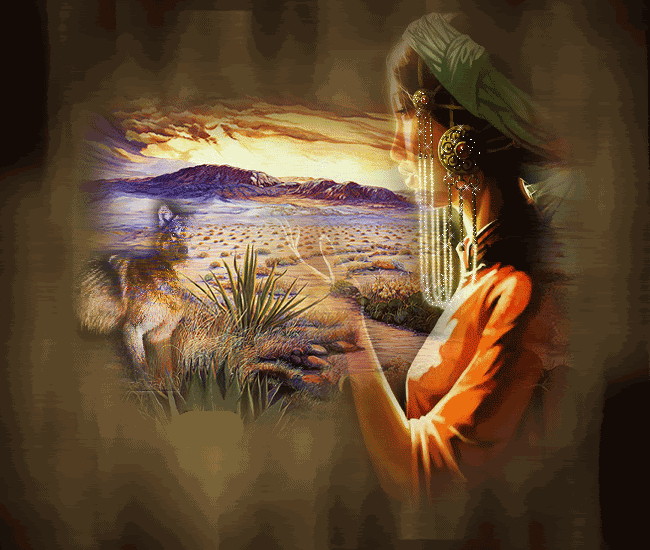
The ideals of democracy & equality are ideals that the colonies saw in action in the Native towns and villages. The Colonists had lived all their history under the rule of Monarchies & even habitually referred to Native village leaders as Kings. When in fact many members of the tribe had a say in the tribe's decisions, including both men and women. There is strong historical support that the Declaration of Independence was based on, or at the very least, inspired by The League of Iroquois!
source: http://hoffmanshome.com/native/

Natives culture and religion should be valued. They have made many contributions to North American society:
* awareness of concern for the environment
* the design of the kayak, toboggan and snowshoe
* cotton
* over 200 drugs, derived from native remedies
* food staples such as corn,beans,squash, potatoes
* the original oral contraceptive

It is ironic that the wine that is the Christians' most sacred substance, used in the Mass to represent the blood of their God, has caused such a trail of devastation within Native populations. And the Natives' most sacred substance, tobacco, has caused major health problems for so many Christians.
source: http://www.religioustolerance.org/nataspir.htm
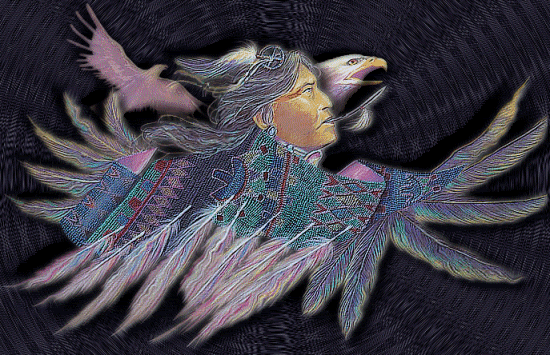
"Remember: If the Creator put it there, it is in the right place. The soul would have no rainbow if the eyes had no tears."
~Indian cheif 1876~

"The culture, values and traditions of native people amount to more than crafts and carvings. Their respect for the wisdom of their elders, their concept of family responsibilities extending beyond the nuclear family to embrace a whole village, their respect for the environment, their willingness to share - all of these values persist within their own culture even though they have been under unremitting pressure to abandon them."
Mr. Justice Thomas Berger, Mackenzie Valley Pipeline Inquiry, (aka the Berger Inquiry).

"Rather than going to church, I attend a sweat lodge; rather than accepting bread and toast from the Holy Priest, I smoke a ceremonial pipe to come into Communion with the Great Spirit; and rather than kneeling with my hands placed together in prayer, I let sweetgrass be feathered over my entire being for spiritual cleansing and allow the smoke to carry my prayers into the heavens. I am a Mi'kmaq, and this is how we pray."
Noah Augustine, from his article "Grandfather was a knowing Christian," Toronto Star, Toronto ON Canada, 2000-AUG-9.

"If you take [a copy of] the Christian Bible and put it out in the wind and the rain, soon the paper on which the words are printed will disintegrate and the words will be gone. Our bible IS the wind."
Statement by an anonymous Native woman.
|